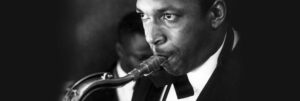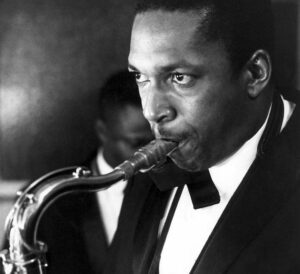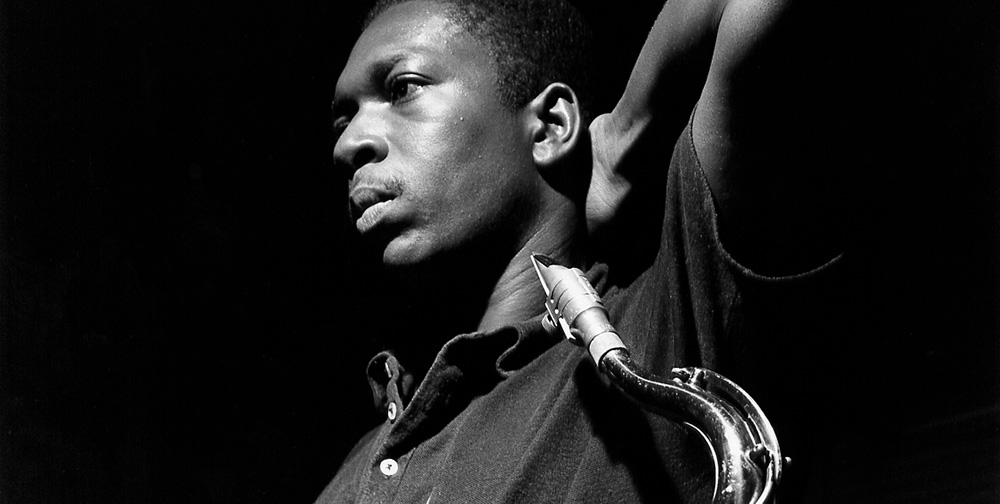At the outset of 1965, John Coltrane was a busy man. There was a lot to achieve and time was short. There was also the small matter of his Impulse contract stipulating that he release three albums a year (he would take part in no less than 13 studio sessions through 1965, and also record live in New York, Newport, Seattle, Paris and Antibes).
Coltrane reported to his friend, the Norwegian jazz writer Randi Hultin, that his band (McCoy Tyner on piano, Jimmy Garrison on bass and Elvin Jones on drums) was so busy that “the musicians never tell me anything.” But at least Coltrane’s personal life was settled at the beginning of 1965: he was happily ensconced in his recently-purchased Long Island home with new wife Alice and their two children.
The epochal “A Love Supreme” had been rush-released in January 1965 after being recorded the previous December. Then Coltrane was back in Rudy Van Gelder’s studio on 17 February, adding bassist Art Davis, who had already appeared on “Olé Coltrane” and “Africa/Brass”, to begin work on “The John Coltrane Quartet Plays” (the only album title of his career that explicitly mentioned his quartet, such was their formidable reputation in 1965). Perhaps because of its disparate recording dates, it’s an album that has probably never quite received its proper due. But it’s powerful music that lives and breathes, consistently offering up the sound of surprise.
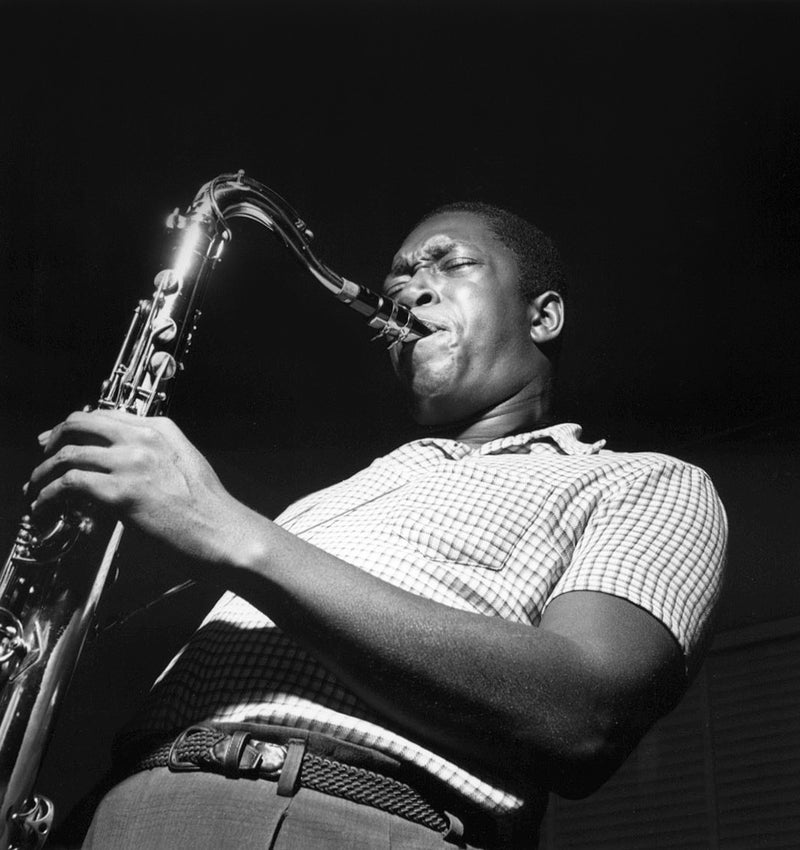
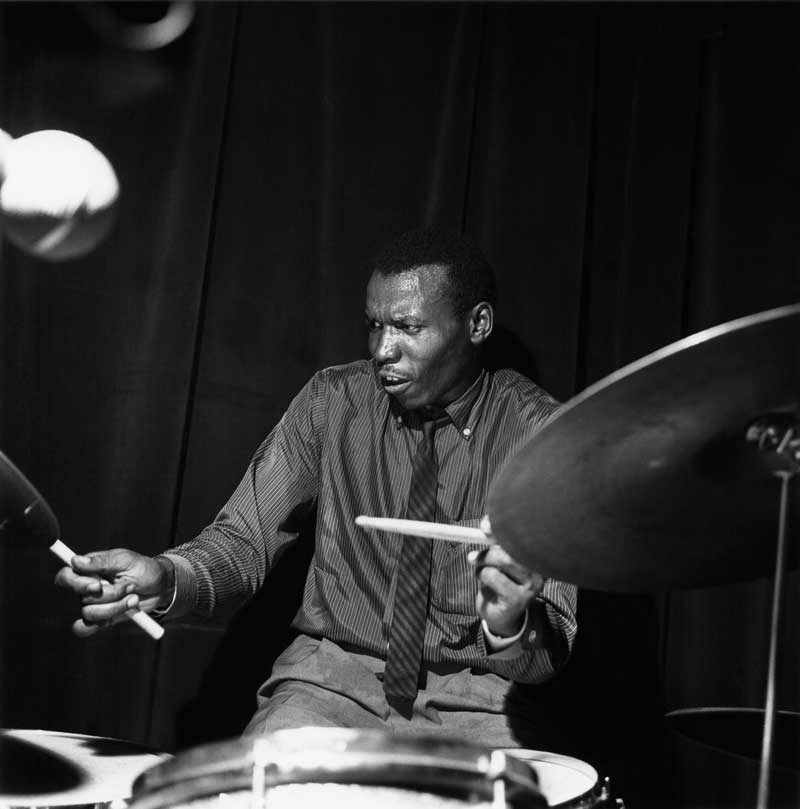
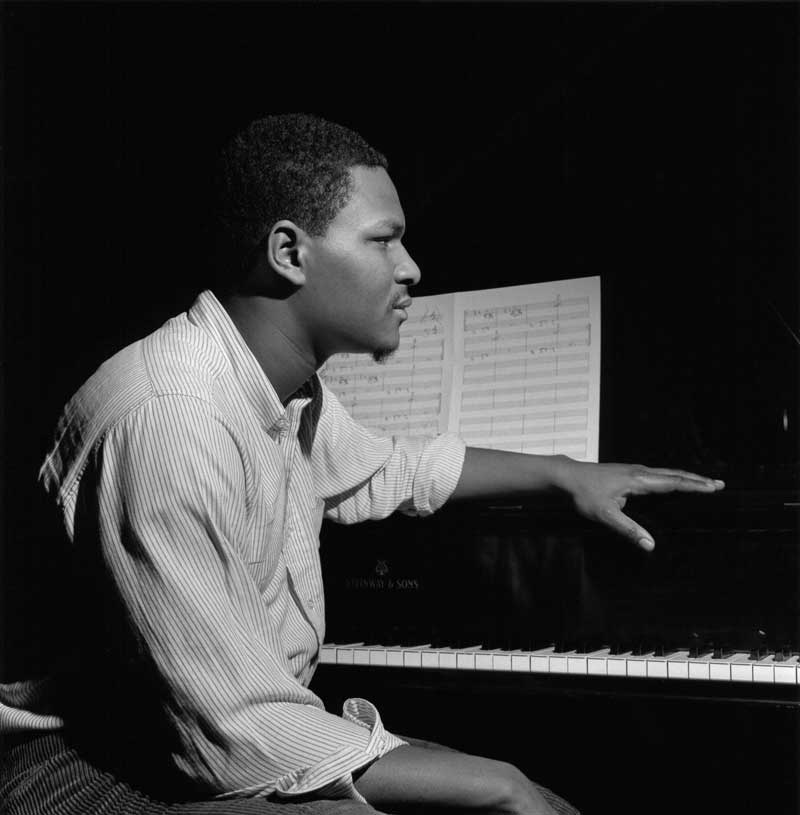
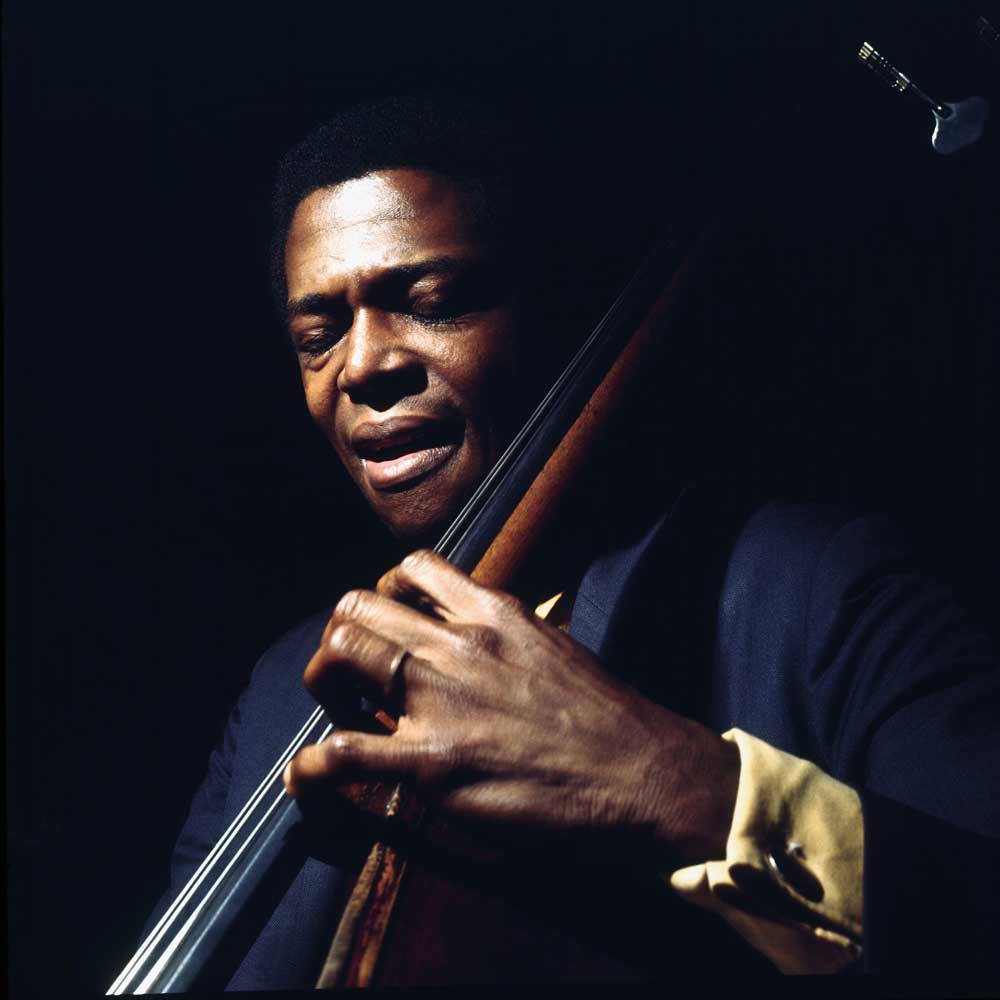
John Coltrane, Elvin Jones, McCoy Tyner, Jimmy Garrison. Photos: Francis Wolff.
The quartet started with two takes of “Nature Boy”, eden ahbez’s beguiling song hitherto probably best known via Nat “King” Cole’s 1948 rendition. The second pass was used for the album, a stunning performance which laid down the template for The New Thing. The introduction saw Tyner playing huge, mysterious chords, suggesting lost continents, while Coltrane leisurely outlined the melody. As Jones moved into 4/4 time, they played the composition modally, leaving out the chord changes, in their now-trademark style. Listen for an intriguing point around the six-minute mark where Coltrane seems to move back away from the mic, and Davis’s bowed bass suddenly and unexpectedly takes a front seat.
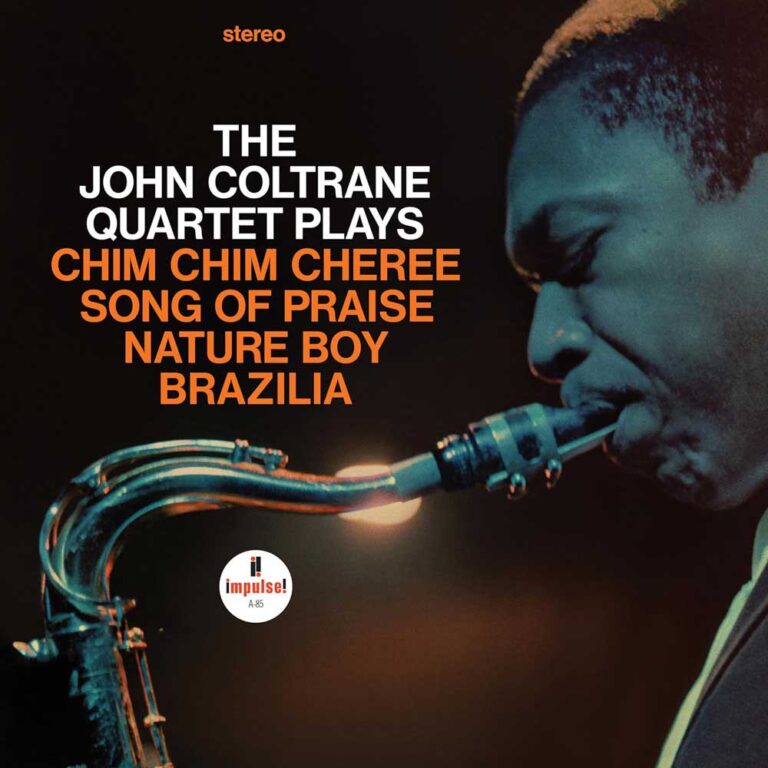
JOHN COLTRANE QUARTET The John Coltrane Quartet Plays
Available to purchase from our US store.“The John Coltrane Quartet Plays” was completed via a second session on 17 May, this time without Davis on bass. First up was a take on “Chim Chim Cheree”, a famous song from the 1964 musical film “Mary Poppins”, written by brothers Richard and Robert Sherman. It was surely an attempt to revisit former glories, another waltz featuring the soprano sax in the vein of “My Favorite Things”, “Greensleeves” and “The Inchworm”. But again it was a fascinating modal excursion, and also Coltrane’s final studio cover version. From now on, it would be all original compositions.
The quartet then recorded “Brasilia”, an update of a track first played during their famous 1961 Village Vanguard engagements. During the rubato opening, Coltrane’s tenor has seldom been so magisterial, and also listen out for Jones’s incredibly long drum roll, punctuated by kick-drum thwacks. The intensity of this quartet was now almost frightening; the energy level barely gives out during the track’s near 13-minute running time (from around 11 minutes in, Elvin eschews strict meter completely, moving to impressionistic salvos around the kit).
“Song Of Praise” closed the 17 May 1965 session. Garrison introduced the piece with flamenco-style chords, obviously influencing Stanley Clarke (check out his “Spanish Phases For Strings And Bass”). There’s a strong Eastern flavour to Coltrane’s serpentine melody and Tyner’s rhapsodic playing during the last few minutes elevates the track to the sublime.
Coltrane was speeding towards the future as he approached summer 1965. The remarkable “Ascension” album would be recorded on 28 June and there were prestige gigs at Newport and Antibes. “The John Coltrane Quartet Plays” was finally released in August, and Coltrane mentioned to Randi Hultin that although he could get “irritated” with Elvin’s playing, he was worried about losing his drummer, and also that he might not have the “guts” to tour Europe without his famous Quartet. It was a very prescient comment: McCoy would leave Coltrane only a few months later, and Elvin would follow in early 1966…

JOHN COLTRANE QUARTET The John Coltrane Quartet Plays
Available to purchase from our US store.Matt Phillips is a London-based writer and musician whose work has appeared in Jazzwise, Classic Pop, Record Collector and The Oldie. He’s the author of “John McLaughlin: From Miles & Mahavishnu to the 4th Dimension” and “Level 42: Every Album, Every Song”.
Header image: John Coltrane. Photo: Courtesy of Verve Records.

